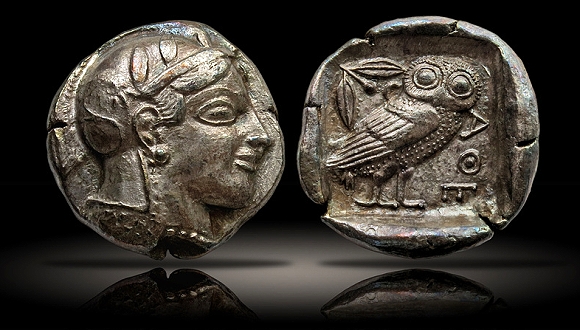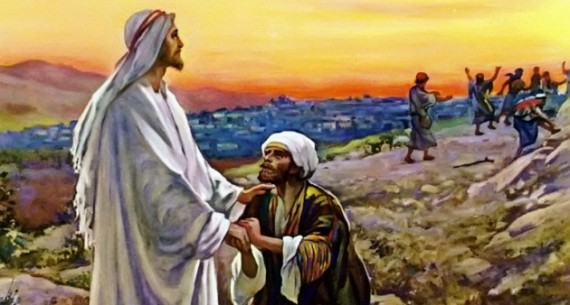Ten Lepers. 9 leave, one returns to give thanks.
This is a story you know by now, so I don't have to hyper-explain it, but there is a peculiar turn of phrase that occurs in the English language printed text. A long time ago, I used to teach elementary school kids about Greek mythology, and in doing so, we talked about Owls as a symbol for Athena, being the goddess of wisdom as she was. And I would ask the kids why it was they thought that the owl was a symbol for wisdom, and they would invariably say 'Because owls ask a lot of questions.' You know, Whoo whooo?
It's a cute idea, but one that doesn't scan, given that 'Who' doesn't mean 'who' in ancient Greek. Words and expressions don't carry one to one from one language to another. So when I talk about this turn of phrase, I'm well aware that it doesn't mean in Greek what it means in English.
Ten Lepers, having to stand a distance away from Jesus even when they're begging for healing, and they call out 'Jesus, Master, have mercy on us.' And Jesus has mercy on them, and tells them to show themselves to the priests. As they go, they are cleansed. The one who comes back does so to give thanks, which he does. Then the text tells us 'Now he was a Samaritan.'
Now he's a Samaritan. Okay, so what was he before? The answer: A leper. Because being a leper is all you are, and all you can be. You're not a carpenter or a father, a wife or seamstress. You're not a patron of the arts, a lawyer, a patrician or a plebe. You're a leper. And lepers are grouped with lepers, for obvious reasons - lepers make more lepers, so the only people they can freely associate with are other lepers. And that's what you get. Remember social distancing, which is a trick that we used recently to try to curb infection rates of COVID-19, and realize that this tactic has been in use for thousands of years. Lepers make more lepers - the only way to keep that down is to have as little contact as possible with lepers. So you put them with each other.
But when they went away and were healed, and as they were healed, the identity of leper was removed. The identity through which everyone else saw and perceived them, that was gone, replaced by who they were apart from their disease and diagnosis. When the one leper returns, the text says 'Now he was a samaritan.' Now. Yes, now. He wasn't before, he is now. What was he before? A leper. And that identity was so strong that it overruled everything else. More than being a man or woman, slave or free, Jew or Samaritan. And those are strong identities, because, as we know from the story of Jesus with the Samaritan woman at the well: "Jews have no dealings with Samaritans." Unless they're both lepers. Then they're equal in their diagnosis - equally bad.
But the healing is a great moment in which the identity of sin is no longer considered by the Lord. That is, in the same way as people are all the same in their leprosy, they are viewed the same by Christ as well. He doesn't heal the Jews but abandon the Samaritan - he sees people afflicted and heals them equally. And this is a clear distillation of the idea that there is no Jew nor Greek, slave nor free, male nor female, all are one in Christ Jesus. Seeing that played out shows us that there are people who are equally afflicted, and equally in need of aid. And if you extrapolate that, we are all equally sinners, identified with that far more than we are our nationality or ethnicity. And we are all in need of a salvation that we can't get ourselves. And if being a leper is too esoteric for you, then I'd like to point out that we are all going to be equally dead someday, and that all skeletons tend to look pretty much alike.
The Lord Jesus is the one who sees through all the petty differences that we erect for ourselves, and identifies our needs first and foremost. He sees the fact that we are desperately lost, that we are devastated in our sinfulness, and cannot free ourselves. On our own, all of us are just hurtling towards death anyway. So he sees the need, and meets it. And in that moment, we go from being equally damned, to equally redeemed. Just as in the grave there is no Jew or Greek, slave nor free, male or female, so too are those differences gone in paradise. All are one in Christ Jesus.


No comments:
Post a Comment